Those of us who are fans of black and white photography know the power of its appeal. The original output of the craft still has a massive draw on us as it produces an abstract quality of tones and shapes, the feeling of which is difficult to emulate in color. These photographers “got it” and their ideas on black and white really help our clarity of thought on the craft.
“Black and white is abstract; color is not. Looking at a black and white photograph, you are already looking at a strange world.” – Joel Sternfeld
“Black and white has the potential to make any photographer a better photographer.” – Rob Sheppard
“When I shoot a photo I already know if the final image will be black and white or colour – it’s a matter of what expressive language you want for that project. Of course, some images are more suitable for black and white world, especially high-contrasted images.” – Gian Marco Marano
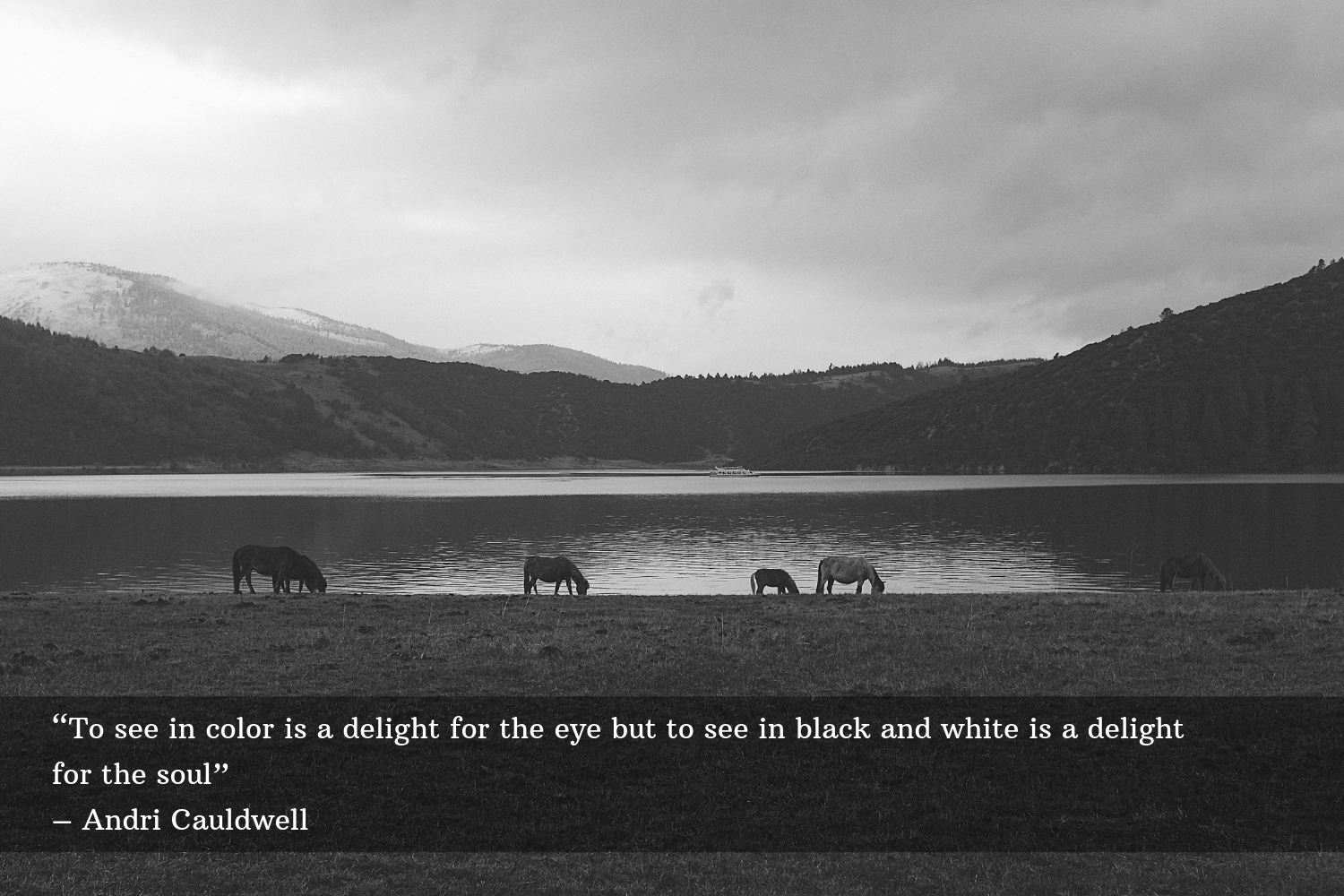
Producing noteworthy black-and-white photographs often involve more than just converting a colour photo to grayscale. An understanding of which scene would work better in black and white than colour is crucial. Taking control of the tone during the conversion process is equally important. You have to show all the shades of gray.
In this post, we have put together some inspirational quotes on the black-and-white world and quotes about photoshoot ideas by noted photographers and artists. We hope these best black-and-white quotes will inspire you to create your own beautiful black-and-white photographs! And of course, we hope they will improve your black-and-white thinking.
Here We Have Collected 70 Inspirational Black And White Quotes
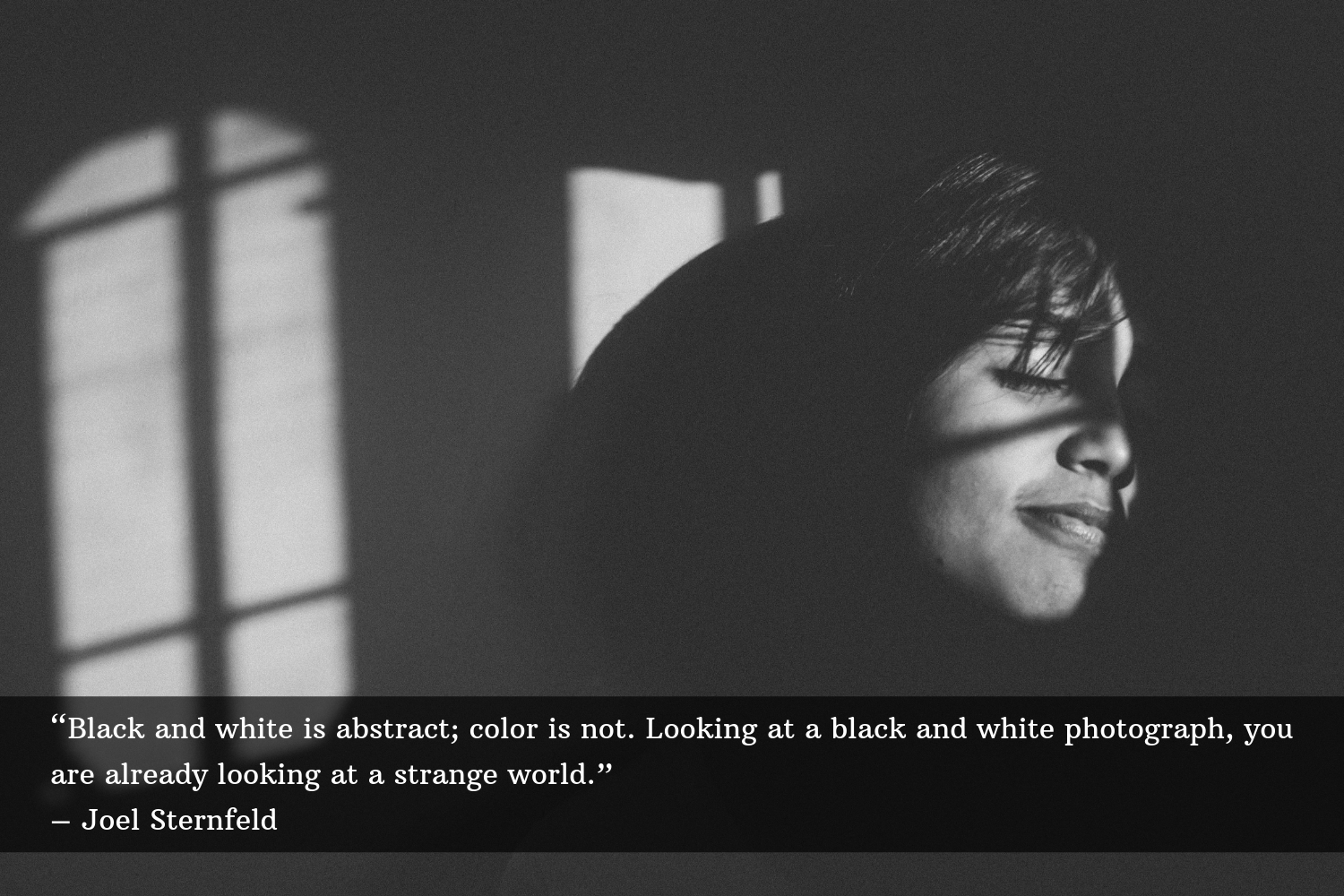
“I think it’s because it was an emotional story, and emotions come through much stronger in black and white. Color is distracting in a way, it pleases the eye but it doesn’t necessarily reach the heart.” – Kim Hunter
“The world is in color, you have to work at black and white.” – Andrew Maclean
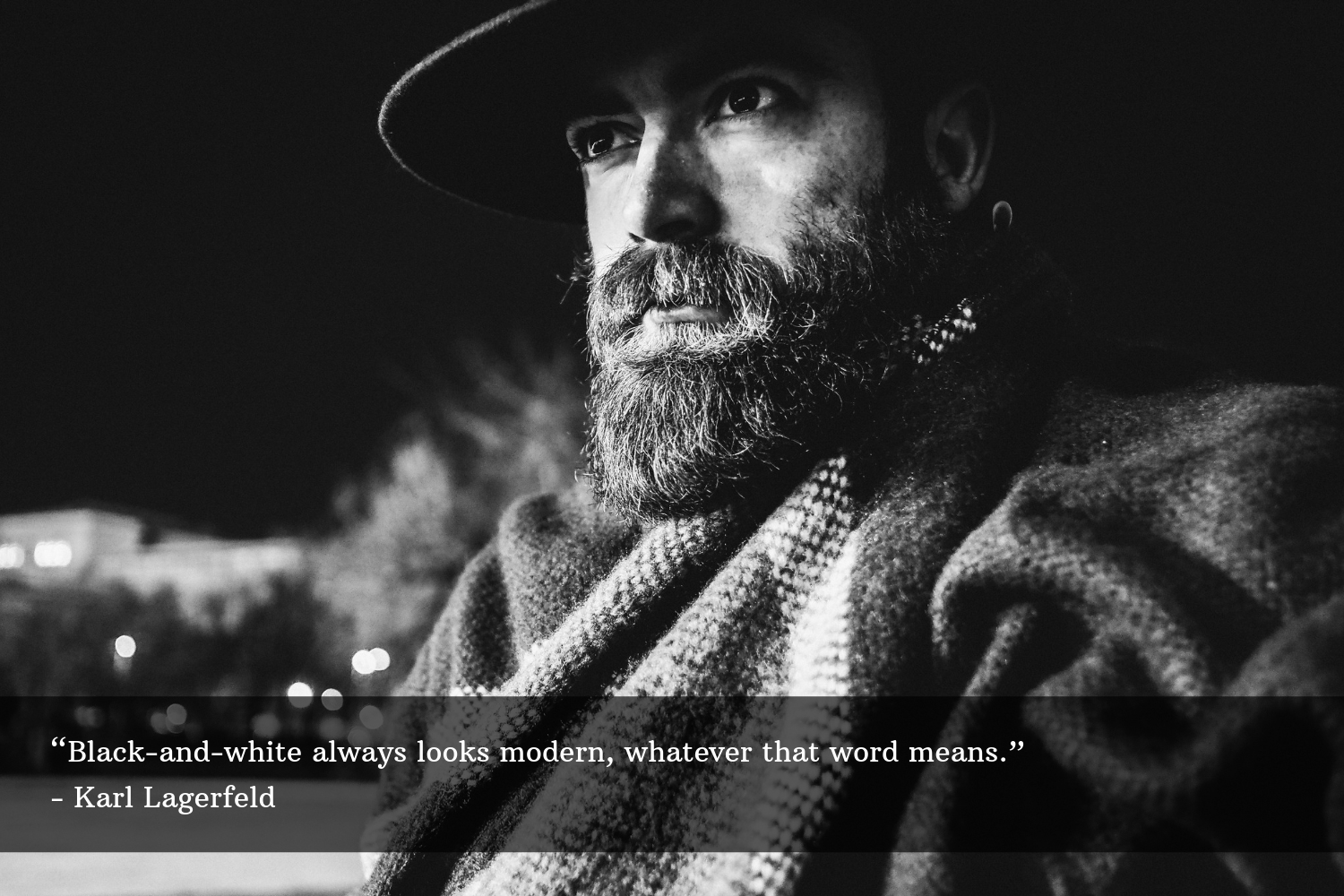
“I work in color sometimes, but I guess the images I most connect to, historically speaking, are in black and white. I see more in black and white – I like the abstraction of it.” – Mary Ellen Mark
“In the history of photography, we have many masterpieces in terms of black and white books. You have Bresson's ‘Decisive Moment,' Frank's ‘The Americans'… many masterpieces. But there is nothing to this caliber in color. Well, I think I'll waltz with my muse and hope that I might be able to produce something on this order in color.” – Ralph Gibson
“Dodging and burning are steps to take care of mistakes God made in establishing tonal relationships.” – Ansel Adams
“With black and white, what you have to say counts more than the way you say it.” – Gian Marco Marano
“Perhaps I am old-fashioned, but black and white films still hold an affectionate place in my heart; they have an incomparable mystique and mood.”― Ginger Rogers
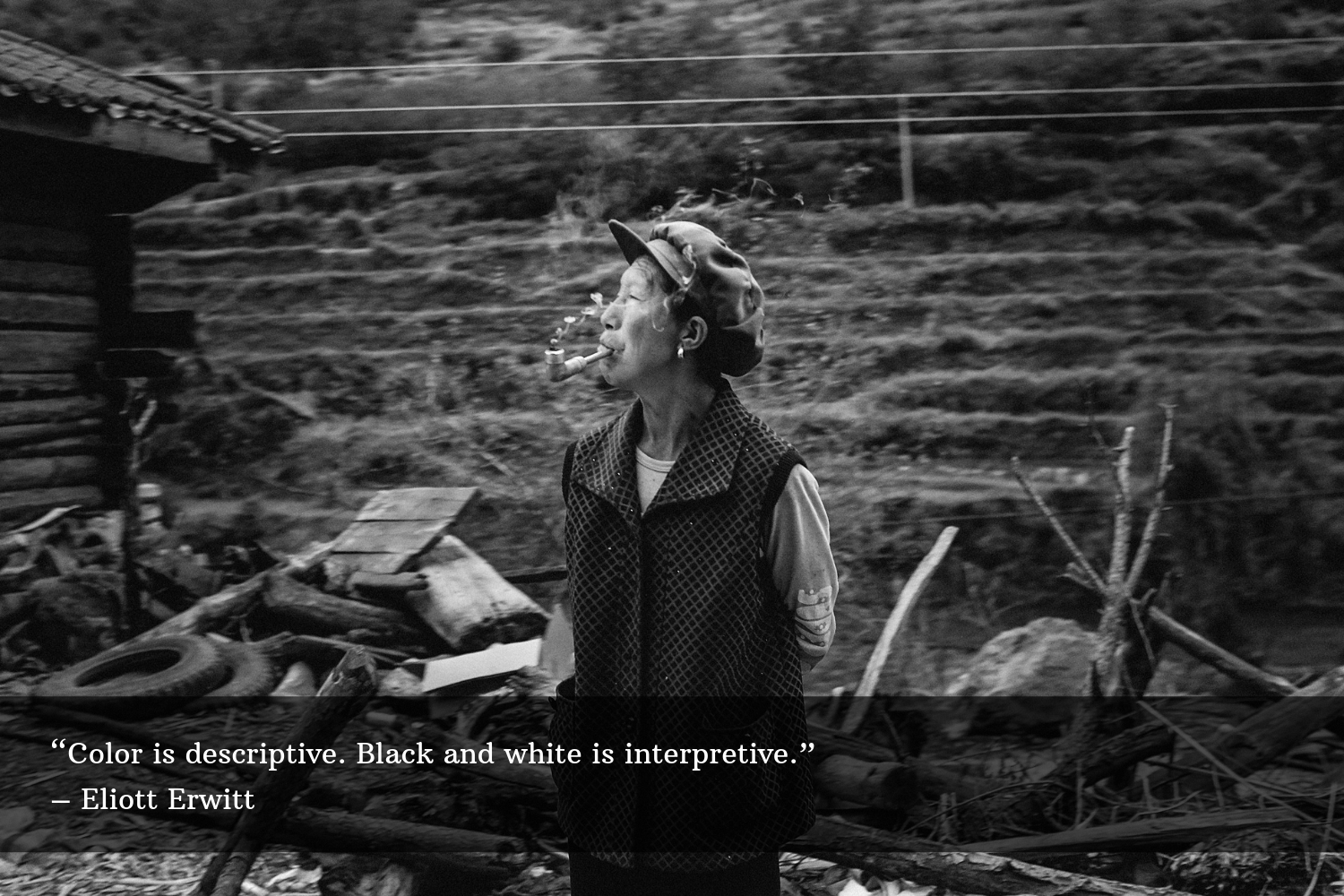
“Black and white can transform a scene into something magical.” – Rob Sheppard
“Let’s assume that all the cassettes of monochrome film Cartier-Bresson ever exposed had somehow been surreptitiously loaded with color film. I’d venture to say that about two thirds of his pictures would be ruined and the remainder unaffected, neither spoiled nor improved. And perhaps one in a thousand enhanced.” – Philip Jones Griffiths
“Which is probably the reason why I work exclusively in black and white… to highlight that contrast.” – Leonard Nimoy
“There’s something strange and powerful about black and white world of imagery.” – Stefan Kanfer
“Color is descriptive. Black and white is interpretive.” – Eliott Erwitt

“Color tends to corrupt photography and absolute color corrupts it absolutely. Consider the way color film usually renders blue sky, green foliage, lipstick red, and the kiddies’ playsuit. These are four simple words which must be whispered: color photography is vulgar.” – Walker Evans
“In black and white there are more colors than color photography, because you are not blocked by any colors so you can use your experiences, your knowledge, and your fantasy, to put colors into black and white.” – Anders Petersen
“One sees differently with color photography than black-and-white… in short, visualization must be modified by the specific nature of the equipment and materials being used.” – Ansel Adams
“In the '70s, in Britain, if you were going to do serious photography, you were obliged to work in black-and-white. Color was the palette of commercial photography and snapshot photography.” – Martin Parr
“What I love about Black & White photographs is that they’re more like reading the book than seeing the movie” – Jennifer Price
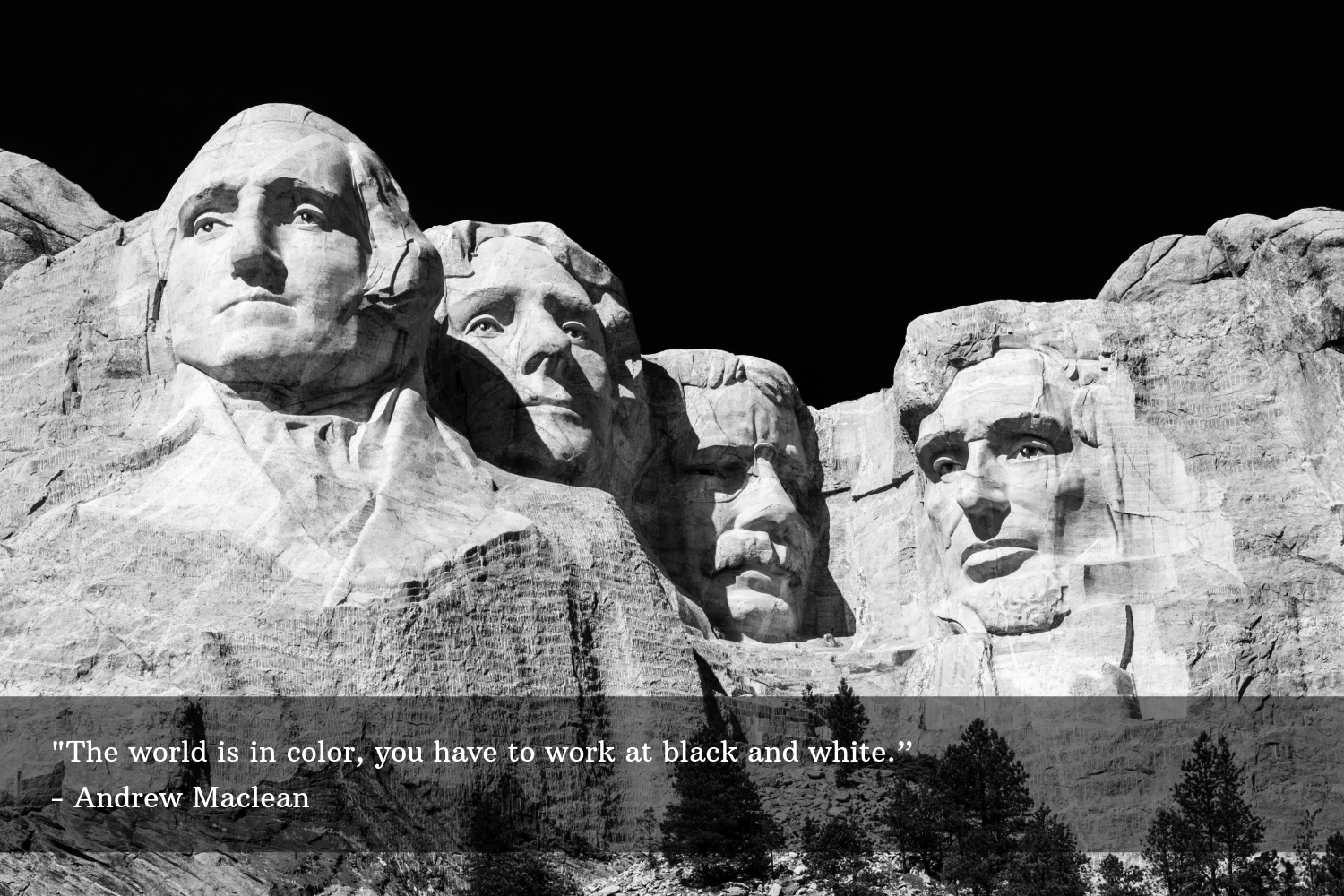
“When you photograph people in color, you photograph their clothes. But when you photograph people in Black and white, you photograph their souls!” – Ted Grant
“Black and white allows me to detach from the cliche ‘souvenir photo’ approach to photography.” – Guy Gagnon
“Black and white creates a strange dreamscape that color never can.” – Jack Antonoff
“There are some locations I go to and they scream black and white to me because of the ambience. For me, great black and white pictures fall into two categories: very dramatic with stormy skies and bold compositions and at the other end of the spectrum a calm and minimalist composition.” – Helen Rushton
“I prefer black and white and portrait photography. I like old, you know, interesting faces, so I think black and white brings out the contrast.” – Brooklyn Beckham
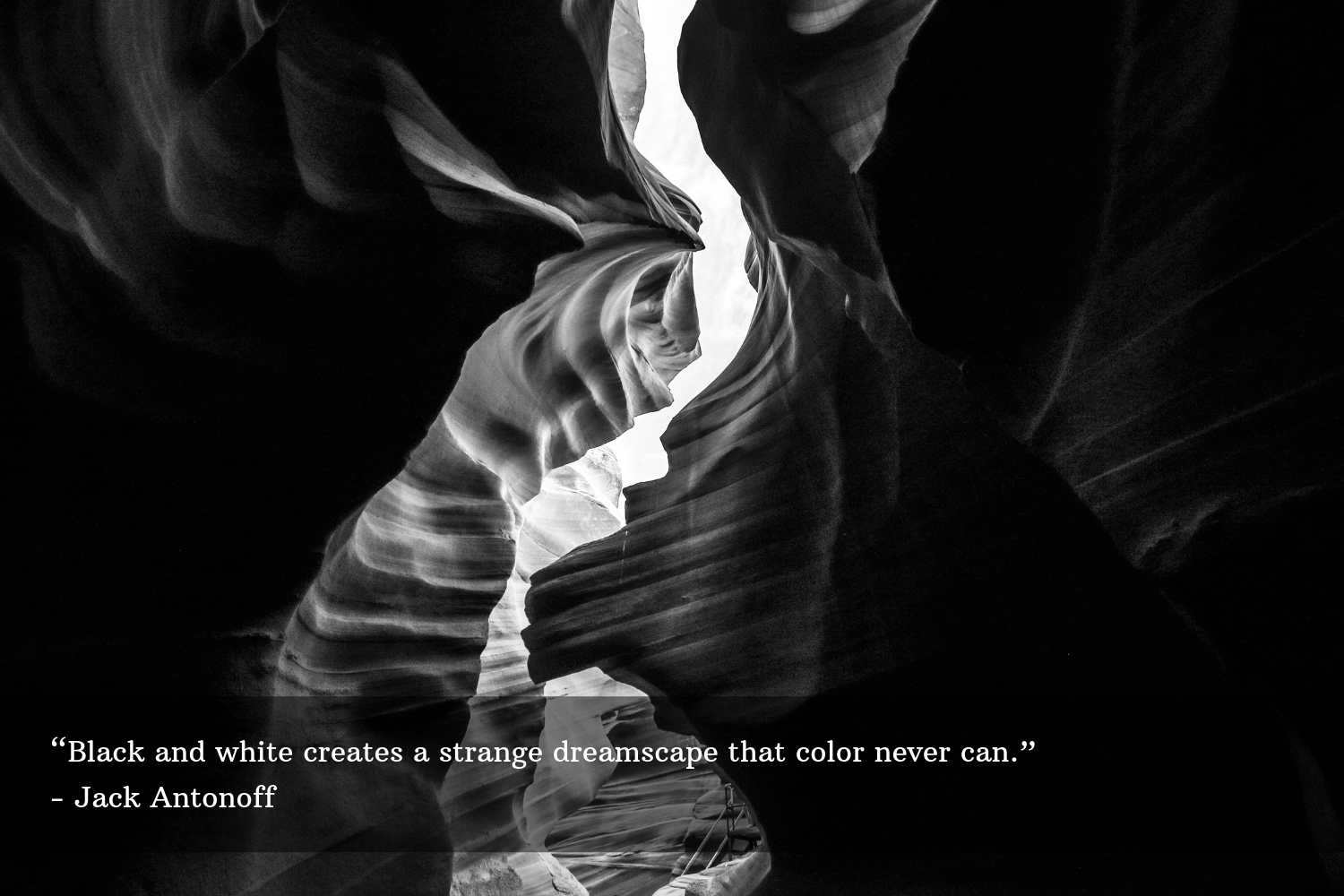
“Maybe black and white is the best medium for landscapes, I don't know.” – Fay Godwin
“When images are in black and white, they seem timeless. When you see Carrie Otis in an ad from 1989 next to an ad with Klara Wester from 2009, you don't see a 20-year difference between the pictures.” – Paul Marciano
“I work in colour sometimes, but I guess the images I most connect to, historically speaking, are in black and white. I see more in black and white – I like the abstraction of it.” – Mary Ellen Mark
“Everything always looked better in black and white. Everything always looked as if it were the first time; there's always more people in a black and white photograph. It just makes it seem that there were more people at a gig, more people at a football match, than with colour photography. Everything looks more exciting.” – Jack Lowden
“With the black and white films, one was concerned with tone.” – Julie Harris
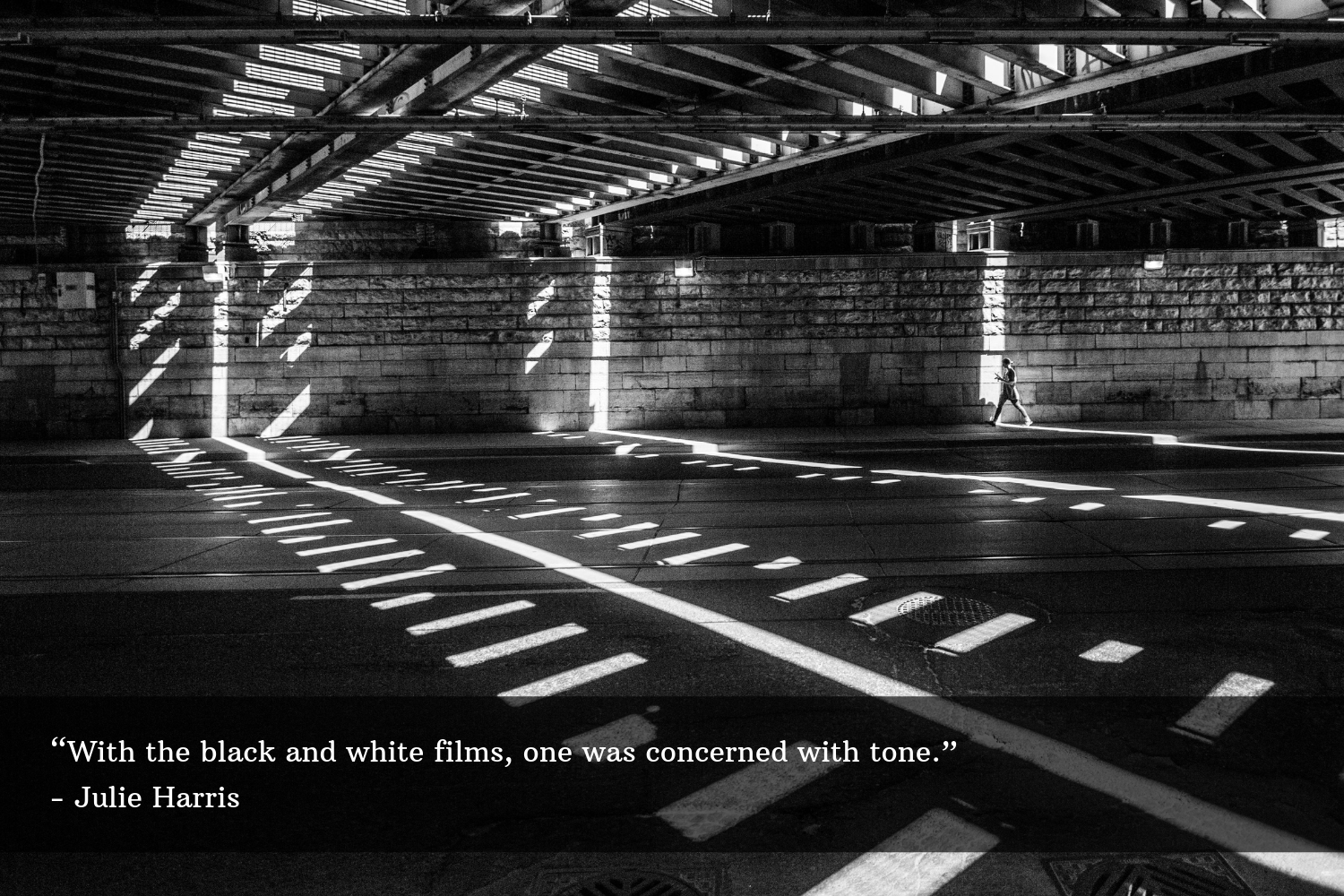
“To see in color is a delight for the eye but to see in black and white is a delight for the soul” – Andri Cauldwell
“When shooting a portrait in black and white you are not distracted by the colours and it is much less confused; this allows me to capture the character of my sitter. My portraits are very calm and, I hope, timeless. I strive to make each portrait a true reflection of the individual.” – Antonia Deutsch
“Black and white photography is truly quite a ‘departure from reality', and the transition from one aspect of visual magic to another was not as complete as many imagine.” – Ansel Adams
“Black-and-white always looks modern, whatever that word means.” – Karl Lagerfeld
“Black and white photography erases time from the equation.” – Jason Peterson
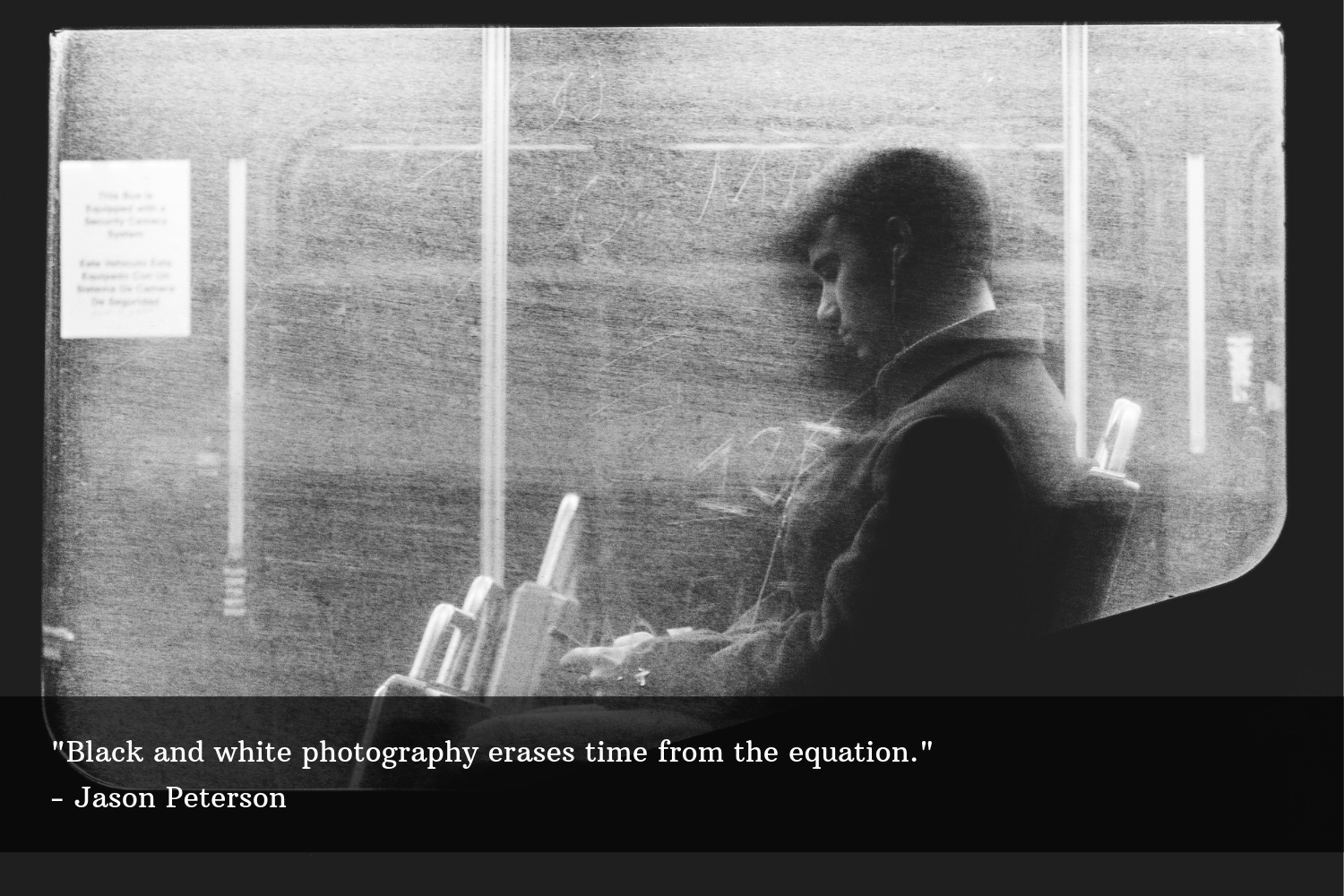
“For black and white landscapes, I concentrate on the graphic elements of a scene, and the nature of the environment, whether it is stormy or tranquil.” – Antonia Deutsch
“I don't see the world completely in black and white. Sometimes I do.” – Benicio Del Toro
“While the absence of color may contribute to our appreciation, at the same time it is important to assert that black and white is not photography minus color. Not at all. It’s much more subtle than turning down the color saturation on your television.” – John Beardsworth
“Architectural photography allows me to tame cities of iron and concrete and find a ‘charm’ within them. With my studio photography shooting plants and flowers, I can keep some affiliation with nature. These two themes often recur in my work and complement each other: the cold, sharp aesthetics and straight lines of architecture are opposed by the delicacy, curves, sensitivity and poetry of nature. These themes have influenced me to switch to the world of black and white to accentuate this darker but more poetic theme.” – Guy Gagnon
“The most colorful thing in the world is black and white, it contains all colors and at the same time excludes all.” – Vikrmn
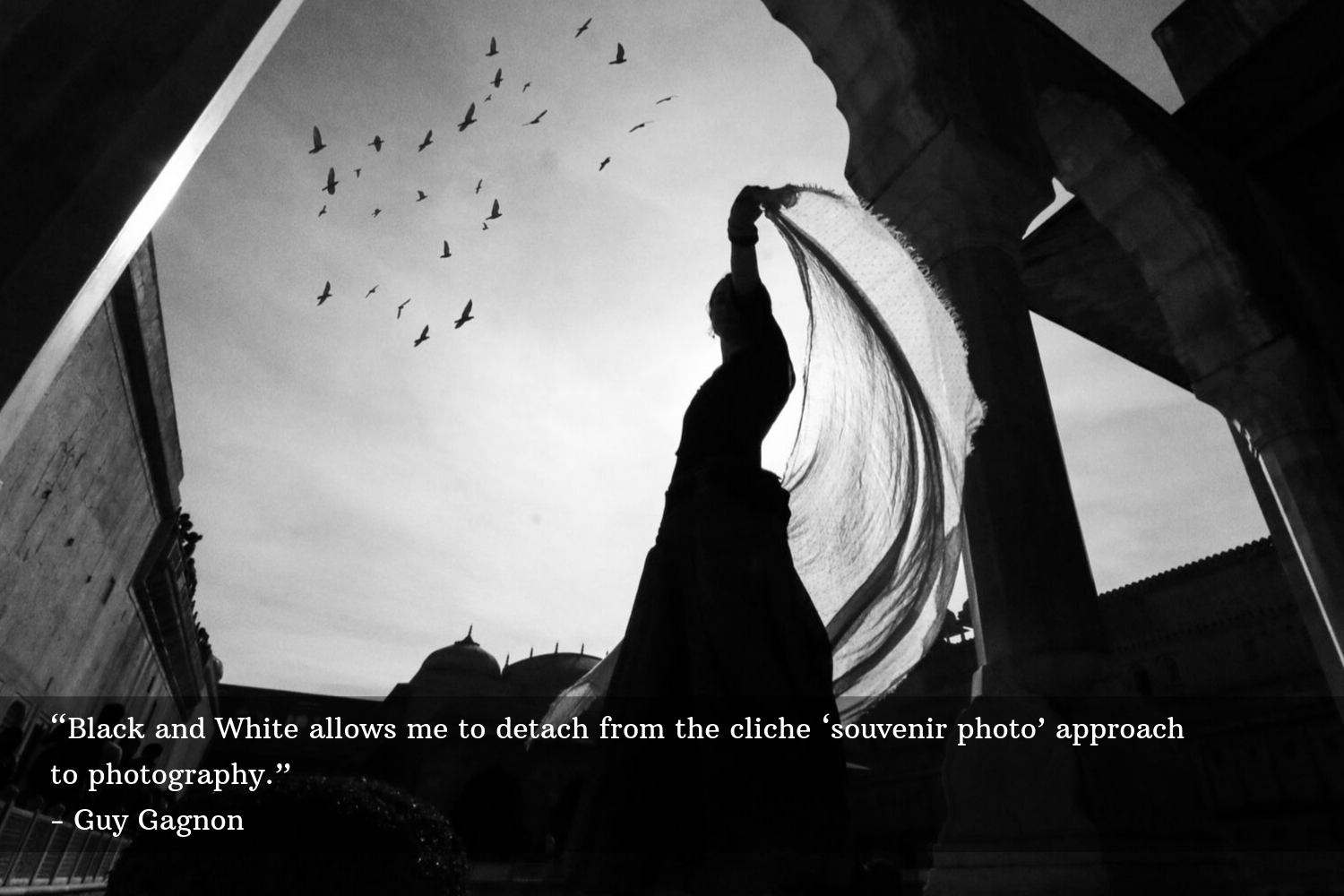
“Working in black and white makes me feel like a painter, not a photographer. Shooting this way allows me to focus my attention on the light and shade, textures, shapes and expressions. It’s really a matter of personal choice, but in my opinion black and white can lead to a more abstract reading of reality, which is arguably more demanding and more challenging to produce. Here photographers cannot use flattering colours or coloured light to distract the eye. You cannot cheat in black and white.” – Guy Gagnon
“Music photographs in black and white are timeless. I can definitely recount more black and white music photographs I love than I can colour ones.” – Dean Sherwood
The special factor about black and white photography is that it doesn’t just copy the reality, but it represents it with its own language.” – Gian Marco Marano
“I’ve been forty years discovering that the queen of all colors is black.” – Henri Mattise
“Color is everything, black and white is more.” – Dominic Rouse
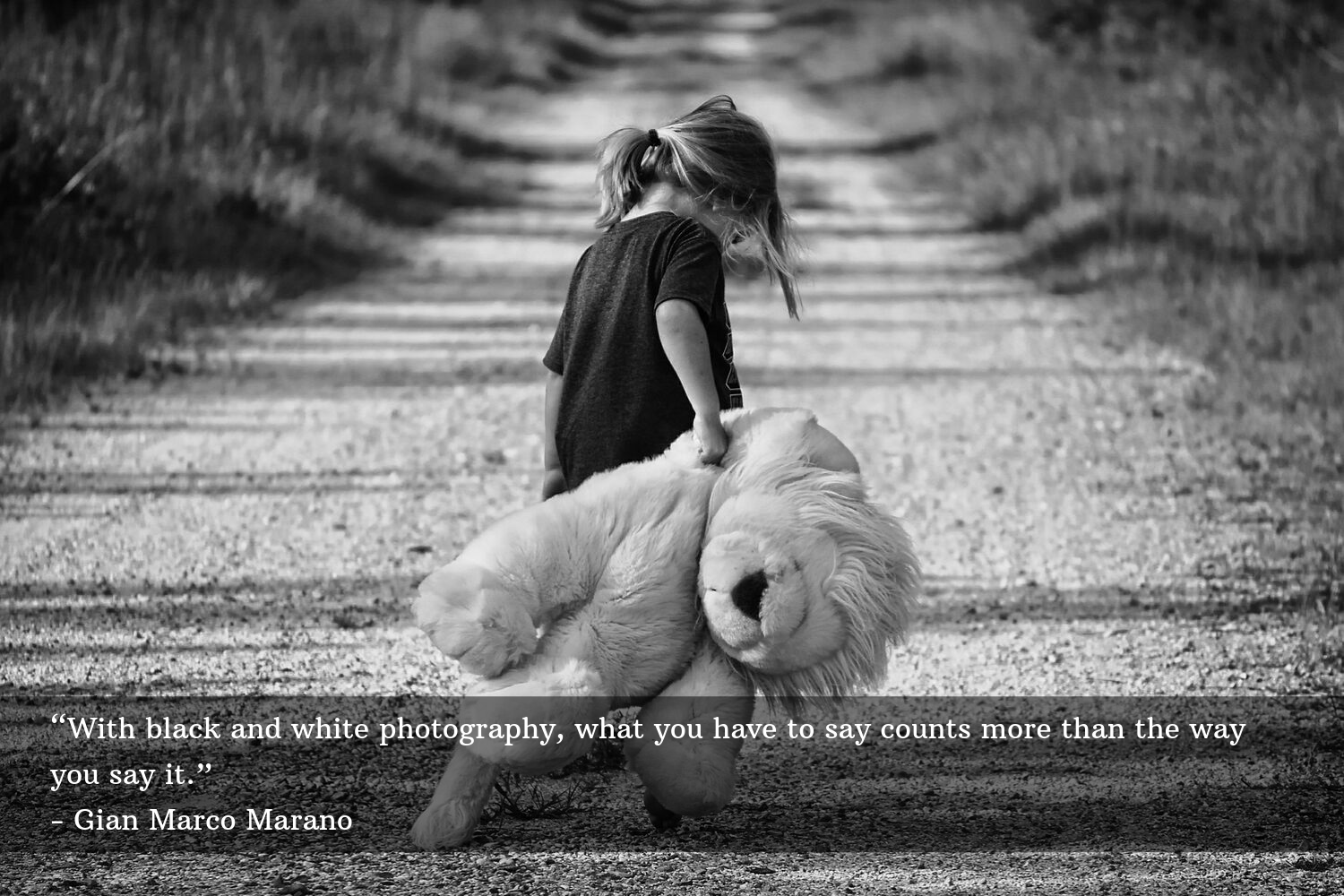
I enjoy using black and white when creating fashion images and portraits as it tends to isolate the model. When shooting black and white, it makes you think differently. Your mindset has to change from colour and you have to think in monochrome.” – James Nader
“Take your time with your composition; black and white images need to be strong to work well. With my black and white imagery I am always looking for bold textures, contrast between layers and lines in the composition to draw my viewers through the image.” – Helen Rushton
“Great color contrasts are great material for black and white.” – John Beardsworth
“As a child, I used to watch old black and white movies and was captivated by the imagery. I think that this influenced my decision to specialise in black and white from an extremely early stage. For me black and white is a purer image which allows greater drama and more expression, be it a portrait or a landscape.” – Antonia Deutsch
“While colour photography gets ever closer to reproducing a ‘real image’, comparable to that witnessed by the eye, mono provides a level of abstraction that can evoke a sense of fantasy, dream or escape.” – Tim Savage
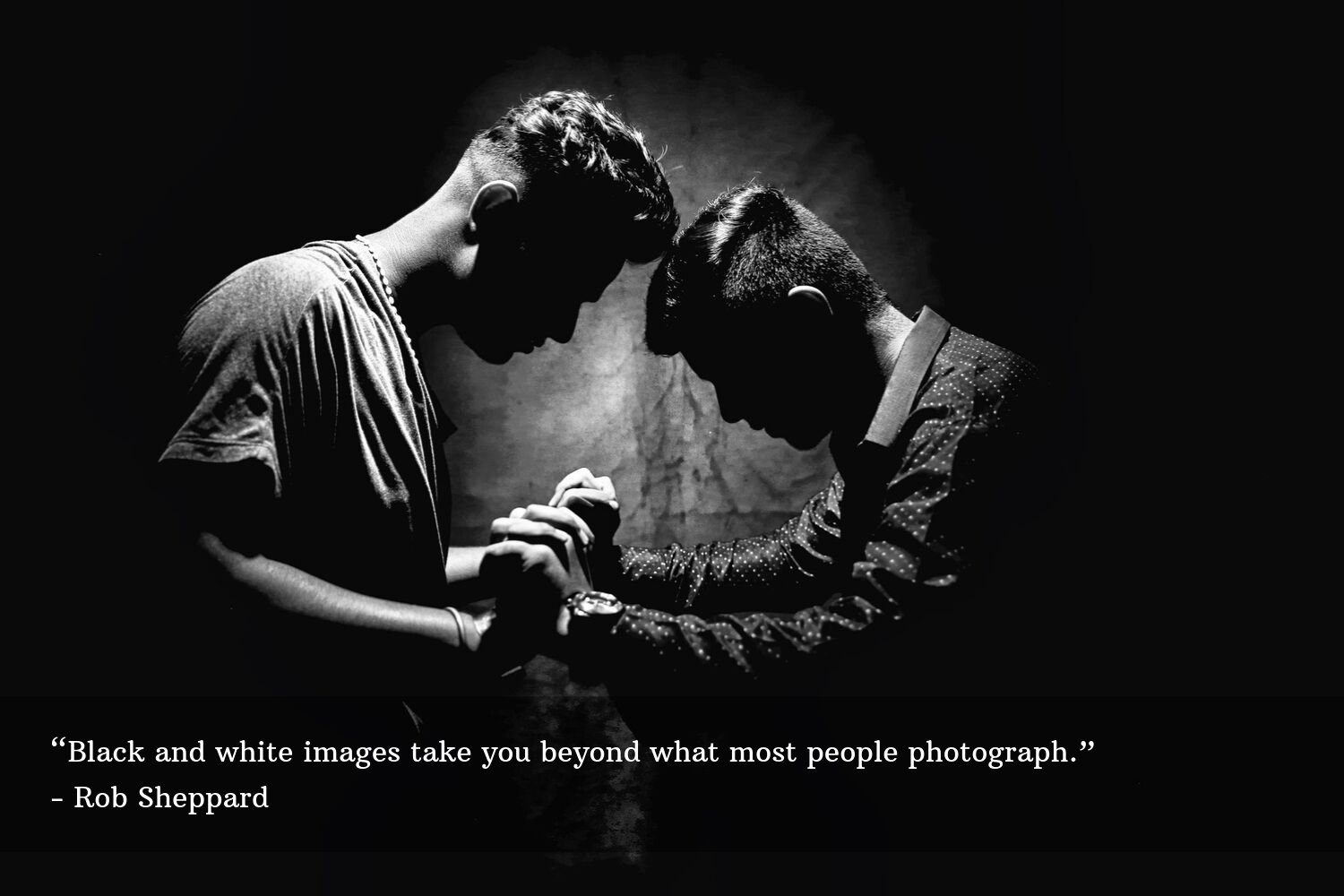
“Black and white photography has an enhanced sobriety and gravitas that can be well suited to formal events such as weddings.” – Tim Savage
“Black and white imagery takes you beyond what most people photograph.” – Rob Sheppard
“One very important difference between color and monochromatic photography is this: in black and white you suggest; in color you state. Much can be implied by suggestion, but statement demands certainty… absolute certainty.” – Paul Outerbridge
“It’s an obvious opportunity for black and white when a scene contains little color but lots of texture.” – John Beardsworth
“The black and white photographer is a musician, transposing notes on the fly, visualizing a final print from the world of color.” – Ted Dillard
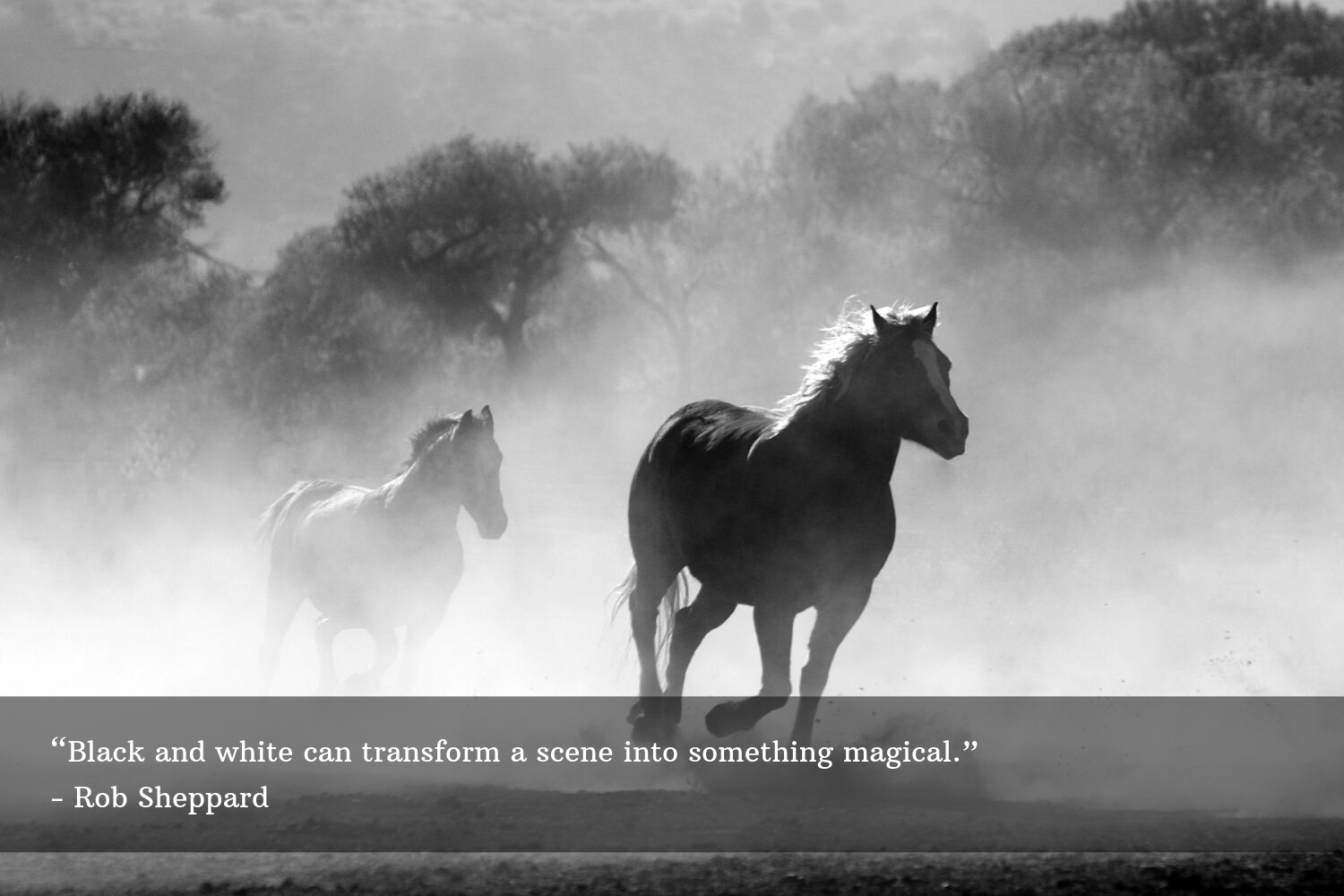
“Good black and white photography is not about the removal of color!” – Rob Sheppard
“My philosophy, like color television, is all there in black and white.” – Monty Python
“Admiring black and white photos is often what first starts people out on their own road to becoming keen photographers.” – John Beardsworth
“A natural self-limitation in photography is to leave out the color and present the world in black and white.” – Harold Davis
“I think every subject deserves to be treated as just what they are, an individual. It’s quite often I will think ‘this is going to look great in black and white’ though. In fact, I’m not sure I’ve ever seen a black and white photograph and thought ‘that would look great in colour’.” – Dean Sherwood
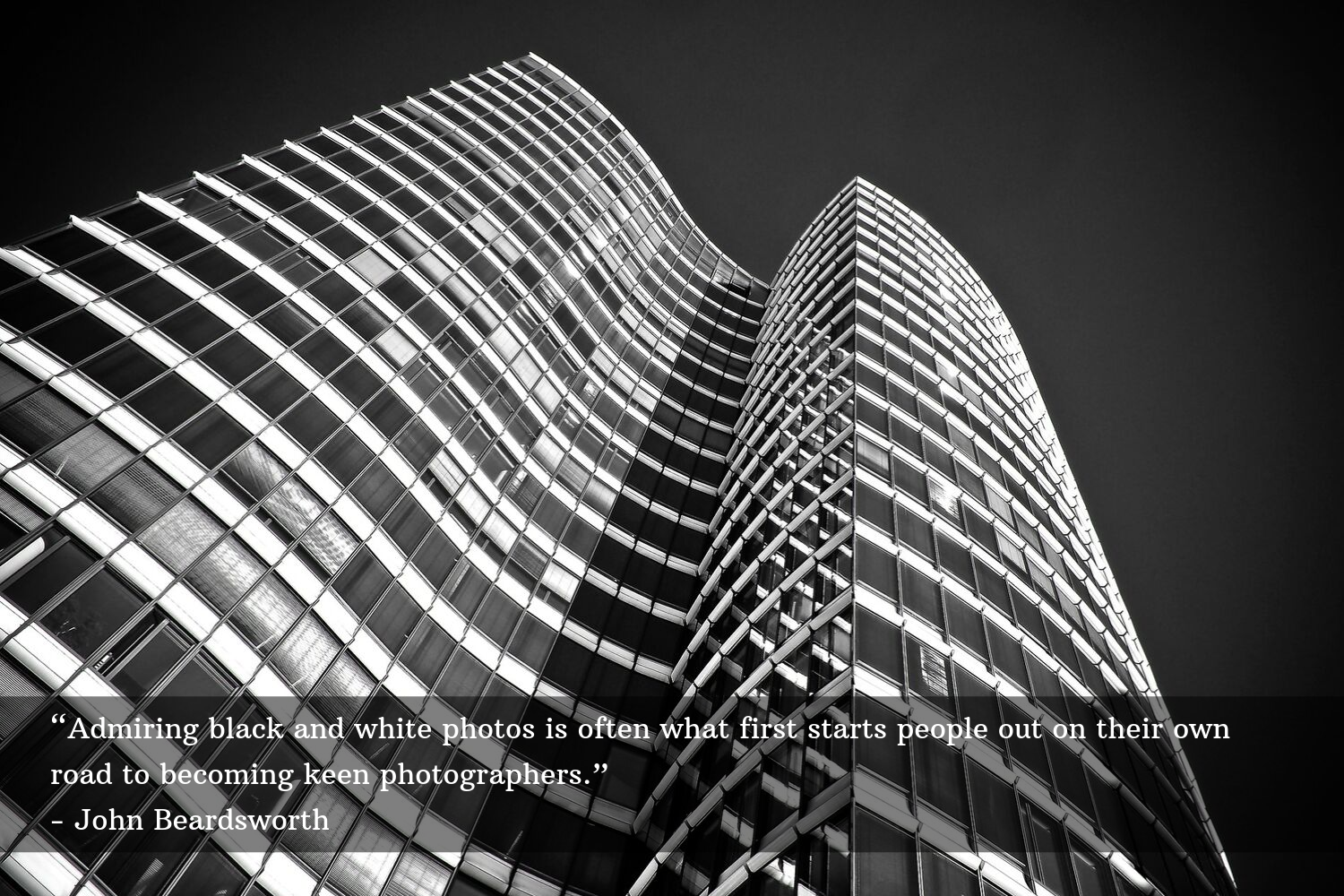
“A good color picture is usually a good black and white too.” – John Beardsworth
“Landscapes are where photography began, and in the beginning, black and white was all there was.” – Rob Sheppard
“Black and white are the colors of photography. To me they symbolize the alternatives of hope and despair to which mankind is forever subjected.” – Robert Frank
“Nothing conveys mood and emotion quite like a good black and white image. But simply removing colour from an image is unlikely to achieve this.” – Robin Whalley
“Black and white has an unsurpassed ability to convey character.” – David Prakel
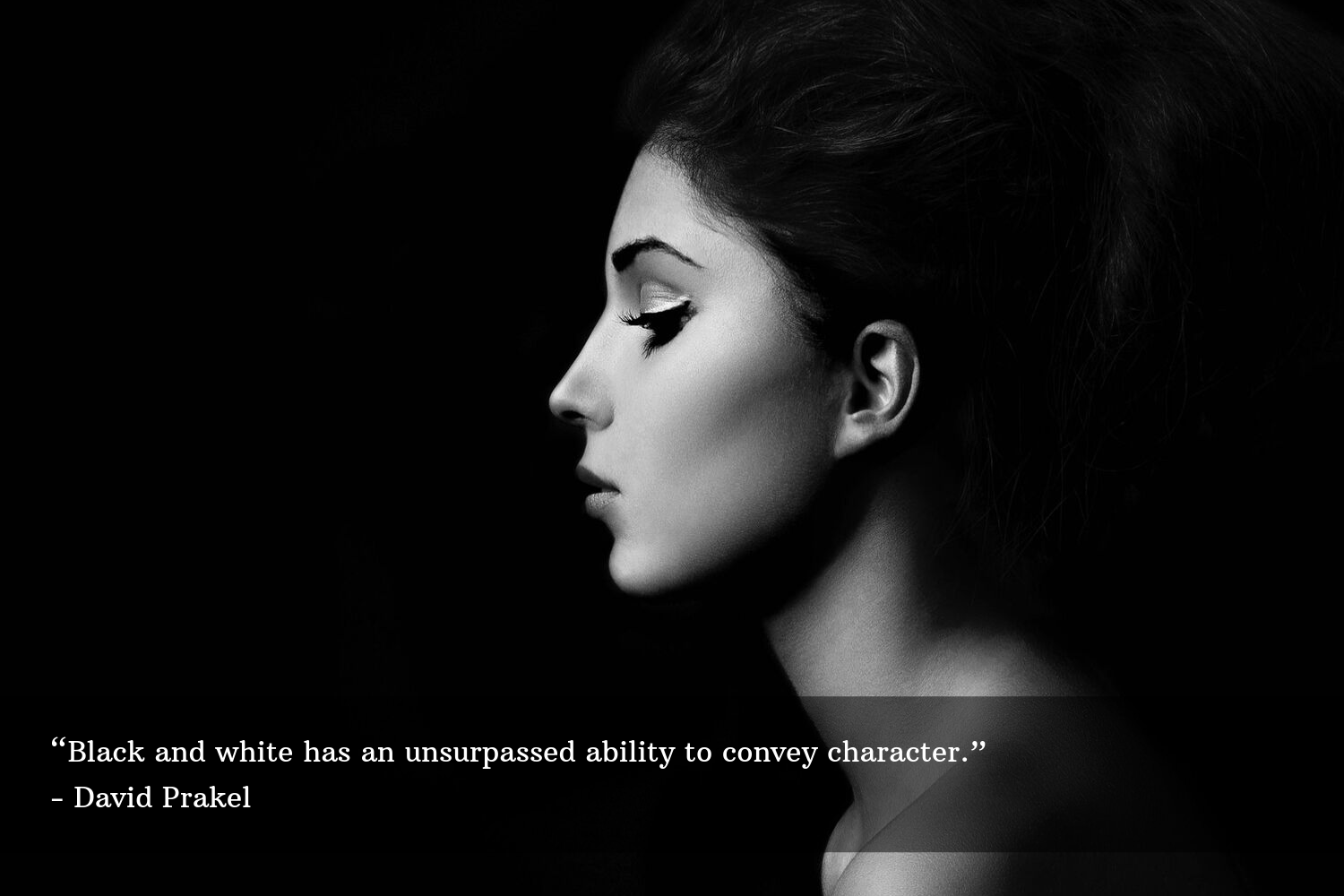
“Black and white finds a new strength in unlikely subjects, taking away the distractions of colour and emphasising form, texture and shape.” – David Prakel
“Mastering black and white photography is about learning to see in shades of gray.” – Ted Dillard
“Landscapes are a classic way of using black and white and can give you a very elegant look at nature.” – Rob Sheppard
“It is always worth reflecting on why you are doing B&W. After all, making pictures black and white is a deliberate choice and there’s usually a bit more to it than a whim.” – John Beardsworth
“For me, converting a colour photo to a black and white is like dipping a film negative in the developer liquid and discovering the final image.” – Guy Gagnon
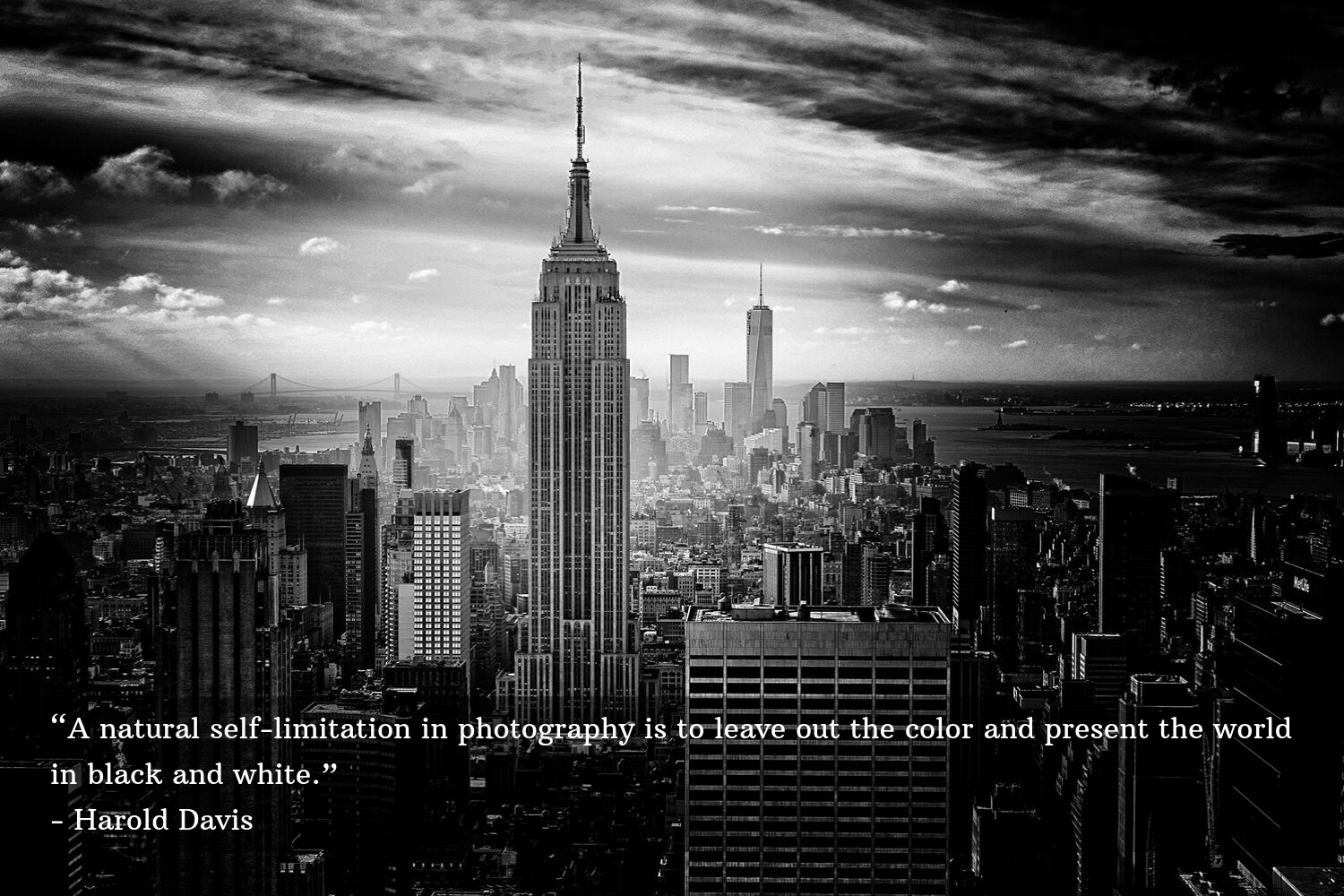
Create A Better Black And White Photo
If you are interested in learning how to create aesthetic black-and-white images that stand out – with a step-by-step guide that will equip you with everything you need to know, do take a look at the best-selling eBook Better Black and White, over at Photzy. You will learn how to evaluate a colour scene for tone and how to convert an image to B&W, in a step-by-step process, using either Photoshop, Lightroom or Elements. Click here now to check it out.
Further Resources For Black And White Photography
- How To Use Color Filters For Black And White Photography
- 3 Powerful Tips To Get You Started With Black And White Photography
- 5 Things To Think About When Getting Into Black And White Photography
- Bite Size Tips: 5 Ideas For Better Black and White Photography
- 9 Tips For Black And White Street Photography Post Production
Updated by Dahlia Ambrose

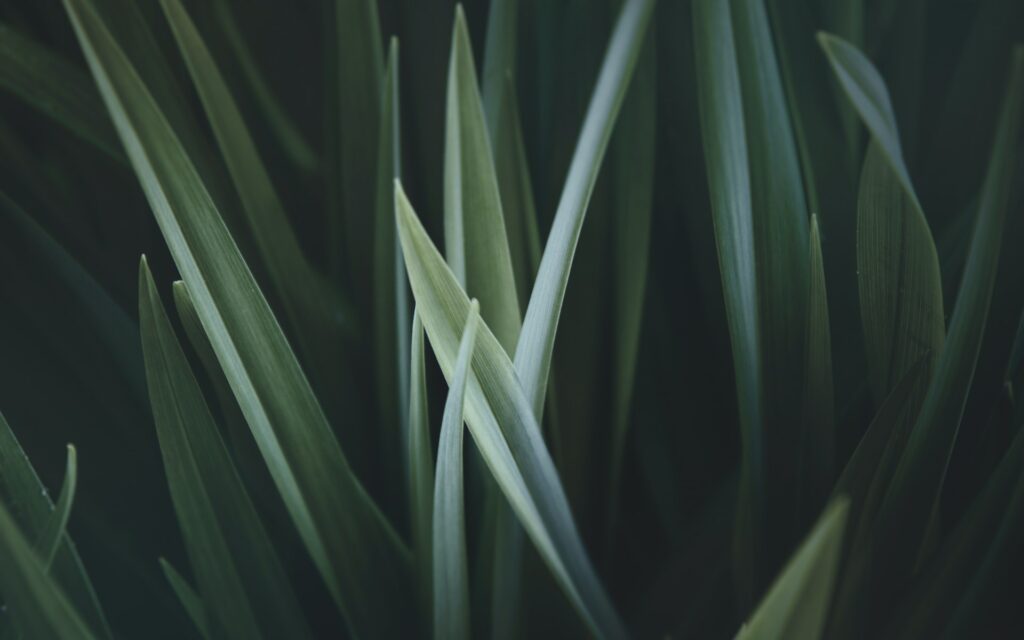
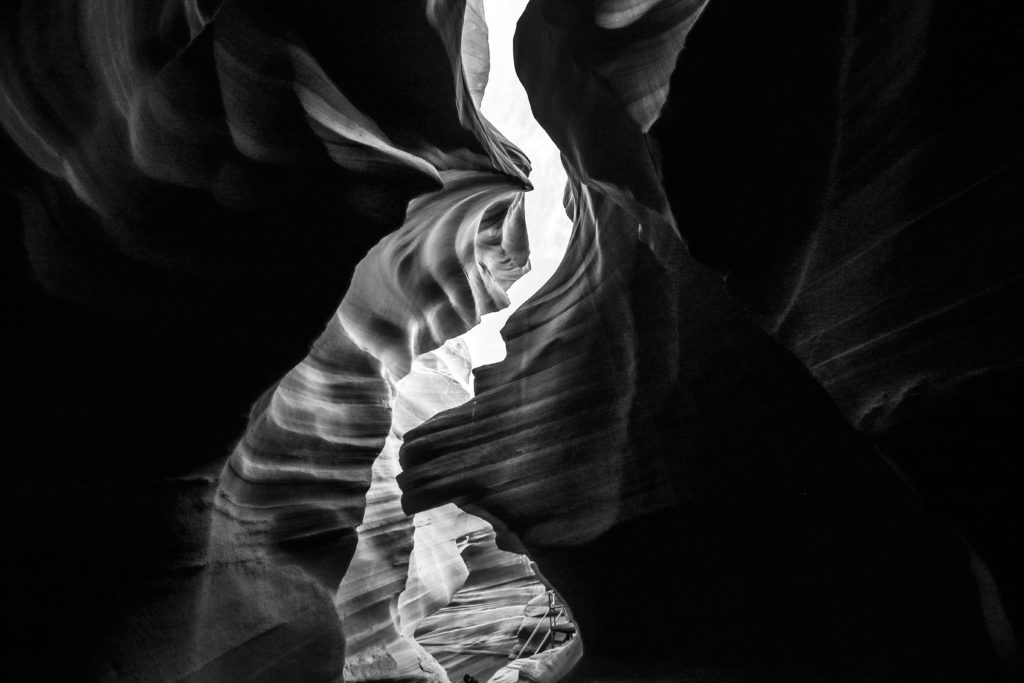
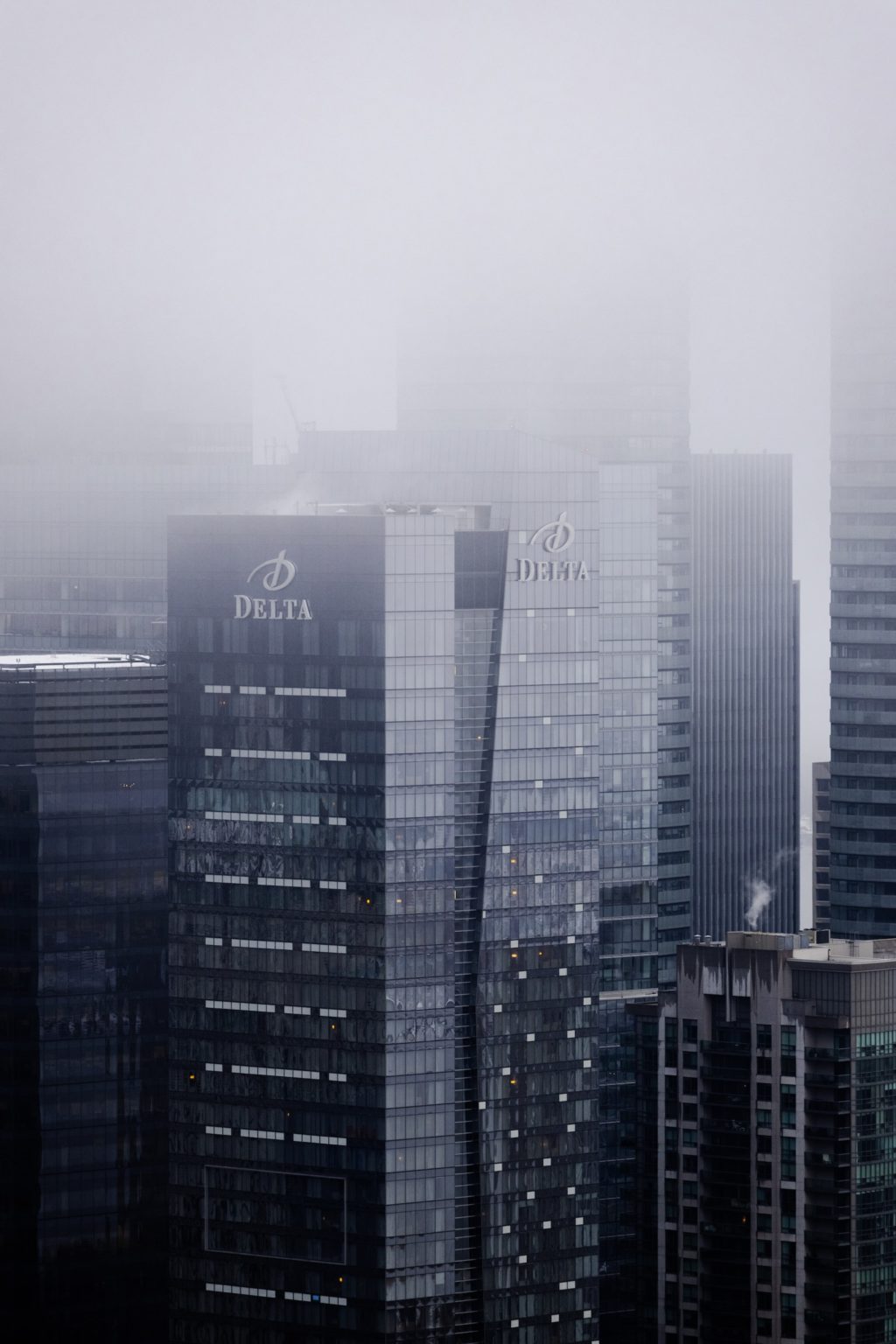
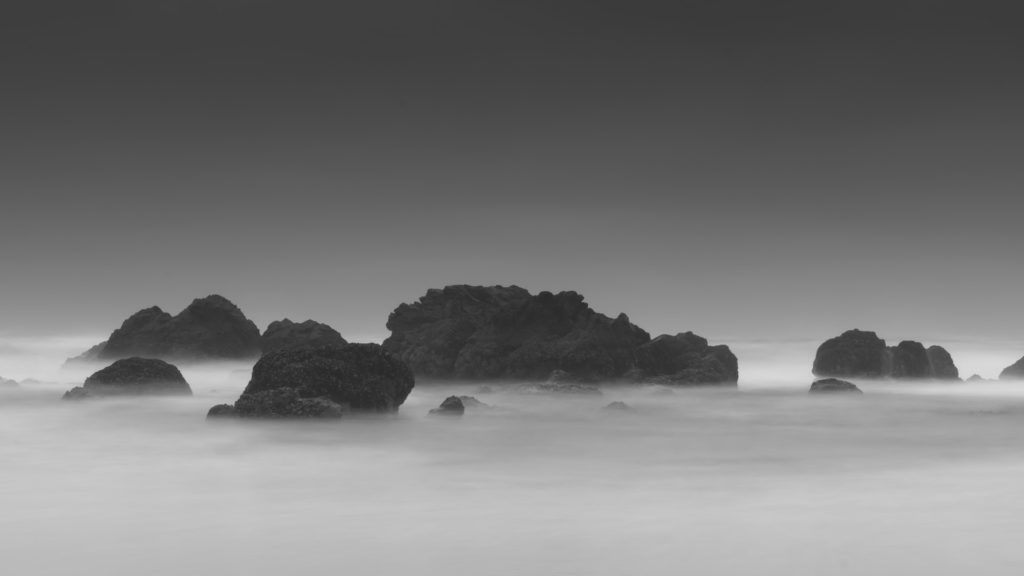
4 Comments
Black and white is definitely capable of much more than they are likely credited for. It’s use in everything from landscapes to portraits can have vastly different meanings. Ansel Adams had a way of taking a black and white photo and transforming it to a colorful story, laying out a road map in my mind to follow while absorbing it. It takes more consideration to properly implement a grey scale strategy and I have the utmost respect for those who can master the intrigue behind black and white photography.
Like any of these discussions, these comments add up to “a point of view” – and everyone is entitled to have one.
Some of these quotes bring back memories of my earlier years as a keen amateur photographer – surrounded by people who had taken to color and no longer had a use for B&W – and kitting my cam out with three magazine backs, one for color and the other two for “normal” and “high speed” black & white. B&W won out handsomely – the overwhelming majority of the photos I took during the first 50 years were B&W.
Now it’s almost exclusively color. It’s where I am – I’ve BEEN B&W, now it’s color’s turn. I do have two remaining comments on this.
One, that my lack of interest in color photography was a reaction to the rather unpleasantly vivid and unnatural colors so prevalent in color photographs a half a century ago – a failure which thankfully has been overcome in the digital era.
And two – if we’re talking about “art” in the context of photography, why should it shun color? – is there someone out there who’d suggest all those “color paintings” are soulless, because they aren’t black & white? For me now – where I am, at this point in the cycle – photography is a study of a range of things – shapes, lines, relationships, light (as such – which is often – but not exclusively – a color-only issue), light & shade (which is a different subject matter), color, atmospheric conditions (which have a great influence over a number of the other factors), and so on.
Eliminating color simplifies some aspects and makes others more complex – or does it? – if the most compelling argument in favor of “B&W only” is a focus on tonal range (as I’ve seen suggested in a number of articles), why is control or understanding of tonal range any less important in color?
If I don’t want to shoot B&W, why is that treated as a heresy? If on the other hand, I do want to shoot B&W, why should THAT be a heresy? Why should I use a 30 second exposure to photograph a waterfall, if I’d rather capture the droplets of water cascading down – or vice versa? Why is it “wrong” to shoot with natural light? – or with a ton of lighting equipment, because it’s “unnatural”?
At the end of all of this, I prefer my “creativity” without blinkers. There are too many preacher men out there, speaking out against too many “heresies”. Which just hobbles “creativity”.
Awesome quotes
Nice quotes. The picture of quotes is also nice.